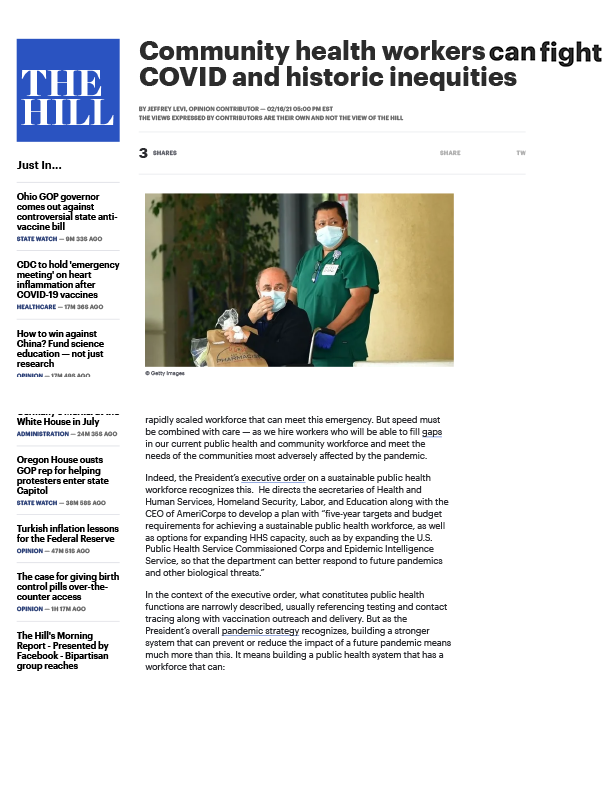
This op-ed discusses hiring workers who will be able to fill gaps in our current public health and community workforce and meet the needs of the communities most adversely affected by the pandemic.
Building a stronger system that can prevent or reduce the impact of a future pandemic means much more than this. It means building a public health system that has a workforce that can:
- Reduce the inequities in our society that have resulted in a disproportionate impact of this pandemic on communities of color;
- Assure that every community is served by a public health system with certain foundational capabilities that give real time capacity to understand and respond to public health threats;
- Address the health-related social needs of individuals and the social determinants at the community level that can mitigate the impact of a pandemic and make communities more resilient during a pandemic; and
- Empower communities to be active participants in their public and community health systems so they trust them during an emergency.

 Back to Resources
Back to Resources